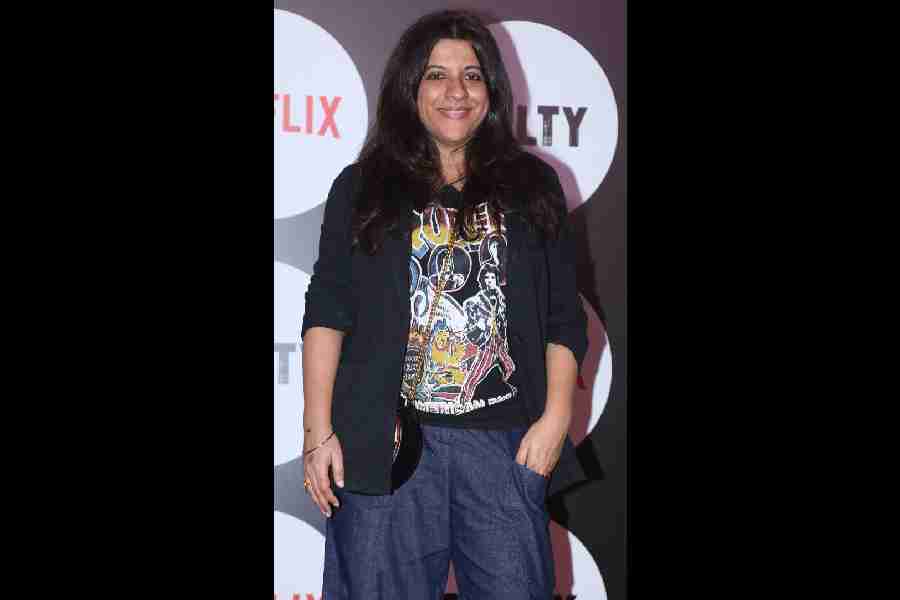With Neeyat, Vidya Balan toogot to tick off one more must-do role on her bucket list. Never mind if the murder-thriller fell flat in its making. At least she got to do the ultimate in inclusivity today — play a lesbian. Like Madhuri Dixit who did Maja Ma, another failure, but could draw satisfaction from doing her bit for the rainbow community.
The problem is, with web shows like Zoya Akhtar’s Made In Heaven, where Arjun Mathur as the gay male lead did not play it like a dandy, and Karan Anshuman’s Inside Edge, a well-made drama with cricket as a backdrop where India’s captain (played by Akshay Oberoi) comes out kissing his partner before a packed stadium, a whole range of short films like Sheer-Korma (Divya Dutta, Swara Bhaskar) and several feature films, the entertainment industry desperately seeks to normalise homosexuality. It’s no longer the days of Deepa Mehta’sFire (1996), Onir’s My Brother Nikhil (2005), Karan Johar’s Bombay Talkies (2013) or Hansal Mehta’s Aligarh (2015), where homosexuality was beaten up when it stepped out of the closet. It’s not even the day of Ayushmann Khurrana’s Shubh Mangal Zyada Saavdhan (2017) or Sonam Kapoor’s Ek Ladki Ko Dekha Toh Aisa Laga (2019), where gays had to fight for acceptance.
It’s a new decade where the concentrated social messaging is: no more raised eyebrows, please. Homosexuality is as everyday as cereals and coffee for breakfast.
However, if filmmakers and actors truly believe in regularising homosexuality, how about stepping off the screen and leading by example in real life too?
I recently met the director of a 1996 Aamir Khan film that was a blockbuster. Back then, everybody knew which waythis director was inclined. But he did a cover-up with an arranged marriage that was probably not even consummated when it came apart within a handful of weeks. But he had no qualms in admitting to me privately that he was indeed as gay as any Ashok Row Kavi.
His reluctance to go on record was understandable. Section 377 of the Indian Penal Code that criminalised same-sex relations was still hanging over people’s heads. In the 70s, after a cover story in a film fortnightly that carried the question “Is Deepak Parashar gay?” the handsome Delhi boy who’d won the first Mr India title and had debuted in B.R. Chopra’s Insaaf Ka Tarazu said to me that those four words on the cover had finished his career.
So, whether you’re a filmmaker or an actor, even unclarified doubts could stigmatise you.
But if Keshav Suri of Lalit Hotels could come out after the 158-year-old colonial law was read down, and Saurabh Kirpal, the senior advocate, could be openly gay even if that jeopardised his elevation as judge of a constitutional court, what’s stopping entertainersfrom going beyond cine-matic claims to diversity and inclusivity?
When the Film Critics Guild, of which I am a founder-member, gave a special award to Zoya Akhtar for Made In Heaven, she wasn’t pleased. Her point was, this is exactly what we don’t want, ithas to be normalised, inclusivity can’t be treated as different and singled outfor appreciation.
Yes, but who from her world is ready to step out and normalise it?
Karan Johar, who has in the past told me that he’s never had a girlfriend, not even in his college days, has at least come up to the brink by saying, “Everybody knows what my sexual orientation is. I don’t need to scream it out.”
But there are so many. A filmmaker renowned for song-and-dance spectacles has a few unpleasant episodes being whispered about his queer shenanigans. Would he dare to come out with his preferences?
A celebrity family has a gay son in its midst. While the woke parents are vocal about every social and political issue, there is silence and a united effort to keep the family secret out of the limelight.
Nobody should be compelled to come out of the closet. But if everybody protects an LGBTQ member as a dirty little secret, is afraid of denting his image, of being laughed at or of what people will say, what’s the use of preaching on screen?










